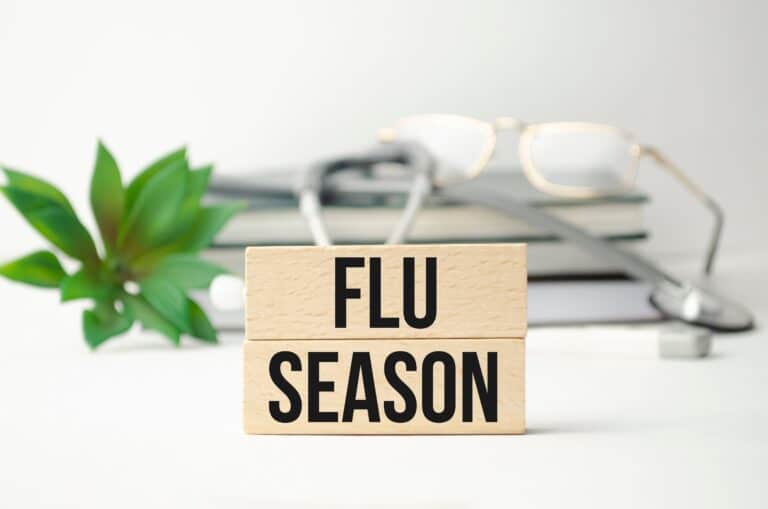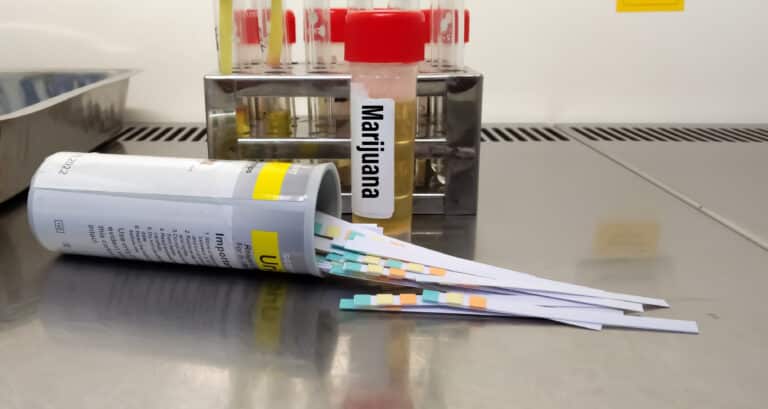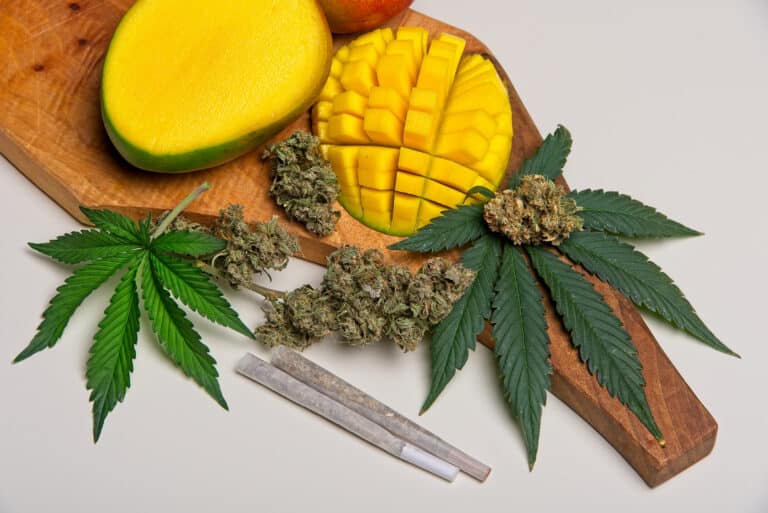https://compcaremd.com/wp-content/uploads/2022/05/1-2.jpg
Delta-8 tetrahydrocannabinol, also known as delta-8 THC, is a psychoactive substance found in the Cannabis sativa plant, of which marijuana and hemp are two varieties. Delta-8 THC is one of over 100 cannabinoids produced naturally by the cannabis plant but is not found in significant amounts in the cannabis plant.
It is important for consumers to be aware that delta-8 THC products have not been evaluated or approved by the FDA for safe use in any context. They may be marketed in ways that put the public health at risk and should especially be kept out of reach of children and pets.
As a result, concentrated amounts of delta-8 THC are typically manufactured from hemp-derived cannabidiol (CBD).
Delta-8 THC has psychoactive and intoxicating effects:
Delta-8 THC has psychoactive and intoxicating effects, similar to delta-9 THC. The FDA is aware of media reports of delta-8 THC products getting consumers “high.”
The FDA is also concerned that delta-8 THC products likely expose consumers to much higher levels of the substance than are naturally occurring in hemp cannabis raw extracts.
Thus, historical use of cannabis cannot be relied upon in establishing a level of safety for these products in humans. As a cannabis product, Delta-8 can cause a cotton mouth. With it, that means the potential for dry and red eyes.
Delta-8 THC products should be kept out of the reach of children and pets.
Manufacturers are packaging and labeling these products in ways that may appeal to children (gummies, chocolates, cookies, candies, etc.).
These products may be purchased online, as well as at a variety of retailers, including convenience stores and gas stations, where there may not be age limits on who can purchase these products.
As discussed above, there have been numerous poison control center alerts involving pediatric patients who were exposed to delta-8 THC-containing products.
Additionally, animal poison control centers have indicated a sharp overall increase in accidental exposure of pets to these products. Keep these products out of reach of children and pets.
What are the potential benefits of delta-8?
Like delta-9 THC, delta-8 produces feelings of euphoria, relaxation, and potential pain relief, but they’re a lot milder.
For people who don’t want to experience a pronounced “high,” the lower potency may be a benefit.
Unfortunately, researchers still don’t know enough about delta-8 THC to confirm that the benefits outweigh the risks. Experts have a much better understanding of delta-9 THC.
What are the potential risks of delta-8?
Because delta-8 is so similar to delta-9 THC, it produces some of the same side effects, like:
- red eyes
- dry mouth
- rapid heart rate
- trouble with coordination
- slowed reaction times
- anxiety
- memory loss
But delta-8 may also have additional risks because it’s something synthetically produced, meaning you might not know what’s really in it.
Additionally, according to an article published in the journal Chemical and Engineering News, products containing delta-8 may also contain delta-9 and delta-10 THC — a compound about which little is known.
These compounds probably won’t produce ill effects, experts say. But it’s unclear whether other by-products, including synthetic ones, are safe to consume.
Is delta-8 the same as THC?
Delta-8 and delta-9 THC have similar molecular structures, but they’re not exactly the same.
Because delta-8 has a different structure, it may produce milder effects than delta-9 THC.
Is delta-8 the same as CBD?
Delta-8 and CBD are both cannabinoids, but delta-8 has more in common with delta-9 THC than CBD.
Unlike CBD, delta-8 produces psychoactive effects.
Where Can You Get It?
You can buy Delta-8 products over the counter at gas stations, convenience stores, weed and vape shops, and online. They’re sold as gummies, candies, vaping pens, oils, tinctures, edibles, joints, or beverages.
It’s important to note that there’s no quality control for these products and its ingredient list. It’s also easy to confuse Delta-8 products for CBD, which doesn’t cause a high.
Is It Safe?
There’s also a lack of research and evidence when it comes to Delta-8’s impact on your overall health. Many people have reported mostly via social media posts that they use Delta-8 along with their prescription medications to help with depression and substance use. Users say Delta-8 can also:
- Calm nausea
- Boost appetite
- Ease pain relief
- Boost mental health
- Prevent vomiting during cancer treatments
However, experts say these benefits are mostly word of mouth and there’s a lack of research on how it affects your health. Just because you can buy it off the shelves doesn’t mean it’s completely risk-free.
Some people have reported side effects like:
- Confusion
- Anxiety
- Drowsiness
- Slow heart rate (bradycardia)
- Numbness
- Fast heart rate (tachycardia)
- Low blood pressure (hypotension)
What makes delta-8 THC more dangerous than regular THC?
The biggest risks of delta-8 are likely due to a lack of regulation, not from the chemical itself.
Because the widespread use of delta-8 is so new, it is too soon to know how addictive it is. However, given its similar effects and the way it activates the brain, it is very likely that delta-8 carries all the same risks as cannabis use, including the risk of dependence and addiction.
Similar to cannabis, there are some serious risks of delta-8 THC use in some specific populations, including:
- Teenagers
- People that are pregnant or breastfeeding
- People with serious mental health concerns
- People with underlying heart conditions
How Long Does Delta-8 Take to Produce Effects?
When it comes to the time it takes for delta-8 to take effect, some researchers suggest three to four hours from intake, while some users claim they start to feel the impact only after one to two hours after consumption. Overall, it depends on a variety of factors.
The time for delta-8 THC to take effect varies from one person to another. Some common factors include body weight or body composition, tolerance to THC substances, overall health condition, purity of the delta-8 THC, quality of the delta-8 THC, and its consumption (i.e., inhaled or ingested).
Furthermore, you can ingest delta-8 with edibles, which come in two kinds digested edibles and those that melt in the mouth. Digested edibles have to be processed entirely by the body to take effect.
An example of this is a cookie. Although digestion varies, it usually takes one to two hours for this to take effect, not considering other variable conditions of the user.
The other type of edible is designed to melt in the mouth. An example is edible candies that need not be digested because as they melt, they are absorbed through the mucous membrane, allowing them to kick in as early as 15 to 30 minutes after intake. Lastly, we have vapors, which are not ingested but inhaled. Again, because of the method in which it is consumed, it takes about 15 minutes to take effect.
All of the given time estimates are precisely just that estimates, given the different factors for every user and the fact that delta-8 THC is relatively new, there are still no fixed parameters for measuring the length of time for its effect.
What Are Some Other Uses for Delta 8 THC?
Delta 8 THC may be useful as an antiemetic or as an analgesic. It is possible that Delta 8 THC could be used to help treat some types of epilepsy and other seizure disorders.
Delta 8 THC also has the potential to be used as an analgesic, which means that it may relieve pain for people who are suffering from various conditions; however, this use of Delta 8 THC has not been approved by the FDA.
Is Delta 8 THC legal?
Delta-8 THC is considered legal at the federal level because it is derived from the hemp plant, instead of marijuana.
Currently, Delta 8 THC is legal in many, but not all, states, as you’ll see in our list. There are some states that have legalized it for medical use only, but there are still quite a few that restrict its usage to a certain extent or ban it completely.
How Long Will the Effects Last?
Similar to the time it takes for delta-8 THC to show its effects, the length of the buzz also varies from person to person. Some effects can be desirable and good, while others are harmful and unwanted. Although some research has stated a delta-8 THC high can last up from three to eight hours, this depends upon the quality of the delta-8 THC you take, along with some other factors.
Like with any drug, there are several factors to consider ascertaining how long the effects of delta-8 THC will last for a person. A few of these include body weight, age, tolerance, etc. Since delta-8 THC is relatively milder, some may say its effects do not last as long. In this case, the dosage can be increased from time to time, depending upon a user’s preference.
Another factor is the kind of concentration of delta-8 THC a person takes. The quality and purity of the delta-8 THC also contributes to this. This is one of the many reasons why it is essential to purchase delta-8 THC only from trusted suppliers.
Finally, the length of the effect of delta-8 THC is also affected by the dosage you take. However, increasing the dosage to get a more prolonged effect could be counterproductive, as it may have adverse effects. A better option would be to retake it only when the effects start to wear off.
Similarities between Delta-8 THC and Delta-9 THC ?
They are different but the same in several aspects. For one, they are both tetrahydrocannabinol and are extracted from the cannabis plant.
Delta-8 is an aged version of delta-9, since the latter is the original extraction. In terms of chemical composition, both substances have carbon bonds that differ in position. Delta-9 THC bonds to the ninth carbon chain, while delta-8 bonds to the eighth carbon chain. This minor difference in number creates a massive disparity between the two substances in terms of their effects.
They are both psychoactive substances that give the feeling of euphoria to people who use them. However, they differ in intensity, as delta-9 THC is about twice the intensity of delta-8 THC. Delta-9 THC and delta-8 THC also have similar means of consumption, which can be through gummies, vape, or flowers.
As an analogy, both coffee and tea have caffeine, which boosts energy for their drinkers. However, while giving similar effects, they are not exactly the same. They provide the same boost of energy in different ways and intensities, and they also differ in taste.
Copyright © 2024 Medical Marijuana Doctor - MMJ Doctor Near Me
Site by CannaPlanners




